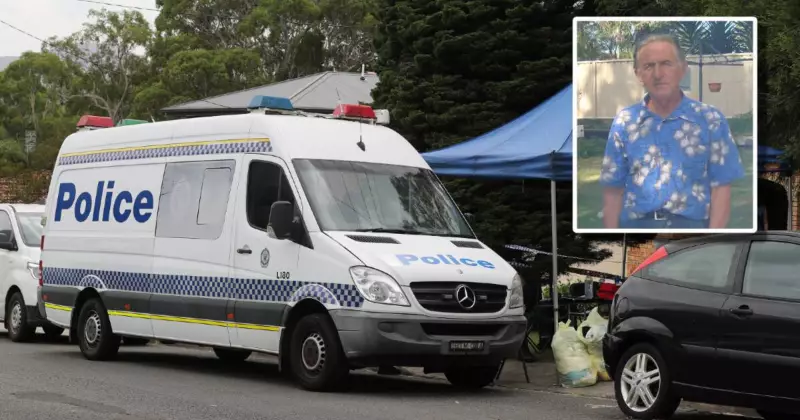
Mental Health Defence Available in Father's Murder Case
The Supreme Court of New South Wales has heard that a mental health defence remains available to a Farmborough Heights man, should the judge determine he killed his father in their shared home backyard. Milenko Snjegota, 49, has pleaded not guilty to the murder of his 74-year-old father, Vitomir 'Vic' Snjegota, in February 2024.
Crown Presents Circumstantial Case
Prosecutor Nerissa Keay told the court the Crown's case alleges Mr Snjegota senior was mowing the lawn when he suffered a severe assault with a crowbar on the afternoon of Saturday, February 3, 2024. A neighbour discovered his body the following day.
The prosecution asserted the accused man was the only person at the Primrose Place home with his father that weekend, and was present when the victim was mowing. Ms Keay submitted it would be "highly unlikely" Snjegota wouldn't have noticed the murder, his father's body, or the subsequent cleaning of the scene with a hose.
While no DNA was found on a crowbar discovered in the garage, which the Crown alleges was the murder weapon, prosecutors contended it had been cleaned. Small stains of the victim's blood were found on Snjegota's boots, which the Crown argued had no reasonable explanation other than involvement in the murder or cleanup.
The court heard about notes found at the house that referenced cleaning and giving his father a "permanent knockdown".
Defence Questions Reliability of Evidence
Defence barrister Scott Fraser SC challenged the reliability of the Crown's circumstantial case. Mr Fraser argued the evidence didn't establish Snjegota was the only other person at the home that weekend, nor that he was present the entire time.
While prosecutors suggested Snjegota must have heard the attack, Mr Fraser noted neighbours heard nothing either, and his client commonly played music and watched television loudly.
The defence highlighted that it couldn't be determined when the victim's blood came to be on Snjegota's shoes, and that a sheet found covering Mr Snjegota's body would have been accessible to any intruder as it had been hanging outside.
Mr Fraser also submitted that if crime scene cleaning occurred, it was "a pretty poor job" given the bloodstains that remained. He noted the significance of no blood being found on the alleged murder weapon.
Psychiatric Evidence Supports Mental Health Defence
Both the Crown and defence acknowledged that if Justice Stephen Campbell finds Snjegota killed his father, a mental health defence is available.
The court heard two well-regarded psychiatrists agreed Snjegota had chronic schizophrenia and appeared to have disordered thinking around the time of the murder. Both experts believed he could not reason that killing was wrong.
Defence counsel submitted that Justice Campbell could deliver a special verdict of act proven but not criminally responsible if he finds Snjegota caused his father's death.
The trial before Justice Campbell, which was adjourned for four months for psychiatric evaluation, will see its verdict delivered in December.





